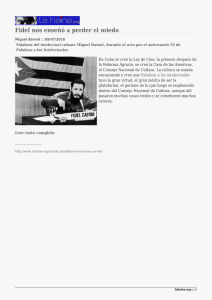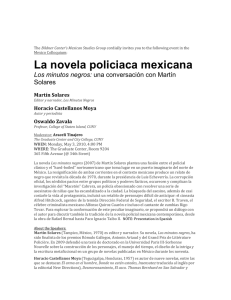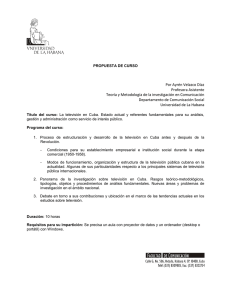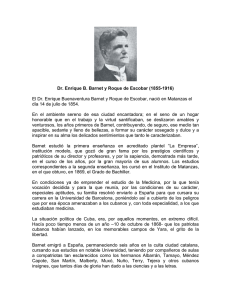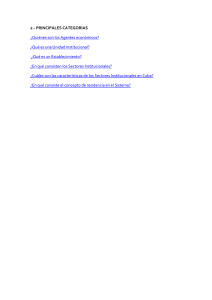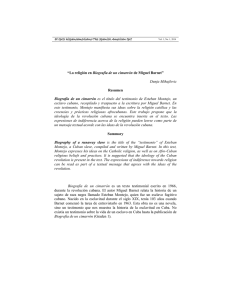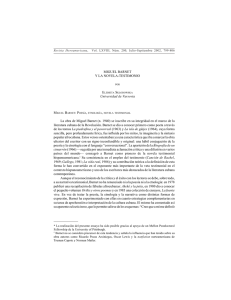To the attention of Dr. William P. Kelly, President of the
Anuncio
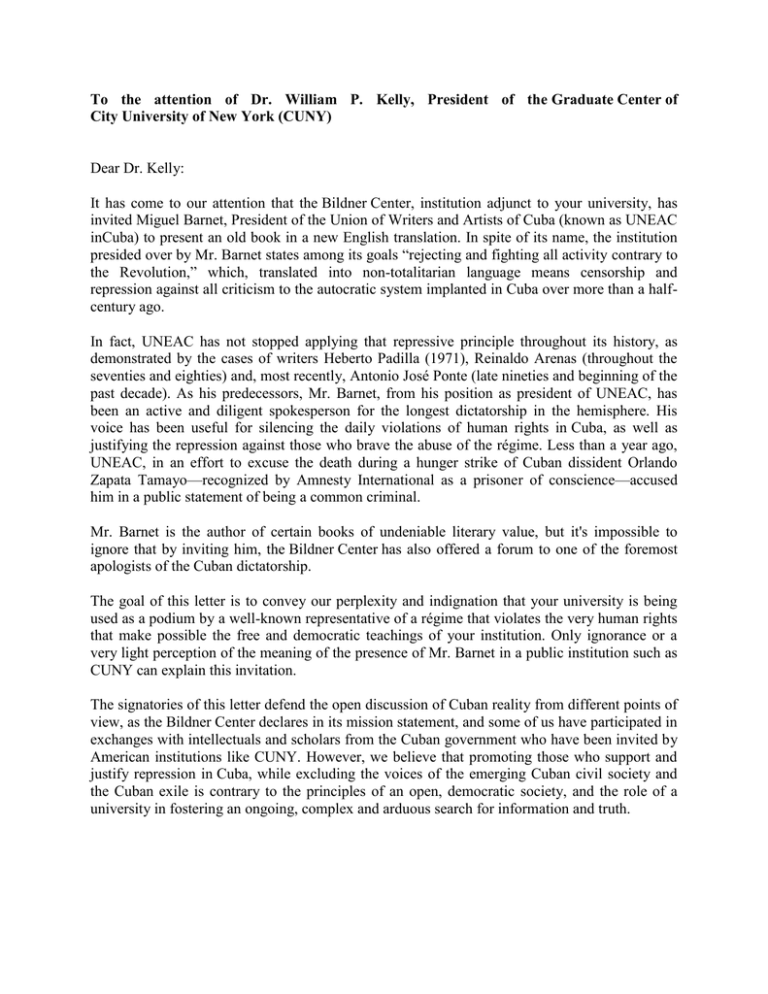
To the attention of Dr. William P. Kelly, President of the Graduate Center of City University of New York (CUNY) Dear Dr. Kelly: It has come to our attention that the Bildner Center, institution adjunct to your university, has invited Miguel Barnet, President of the Union of Writers and Artists of Cuba (known as UNEAC inCuba) to present an old book in a new English translation. In spite of its name, the institution presided over by Mr. Barnet states among its goals “rejecting and fighting all activity contrary to the Revolution,” which, translated into non-totalitarian language means censorship and repression against all criticism to the autocratic system implanted in Cuba over more than a halfcentury ago. In fact, UNEAC has not stopped applying that repressive principle throughout its history, as demonstrated by the cases of writers Heberto Padilla (1971), Reinaldo Arenas (throughout the seventies and eighties) and, most recently, Antonio José Ponte (late nineties and beginning of the past decade). As his predecessors, Mr. Barnet, from his position as president of UNEAC, has been an active and diligent spokesperson for the longest dictatorship in the hemisphere. His voice has been useful for silencing the daily violations of human rights in Cuba, as well as justifying the repression against those who brave the abuse of the régime. Less than a year ago, UNEAC, in an effort to excuse the death during a hunger strike of Cuban dissident Orlando Zapata Tamayo—recognized by Amnesty International as a prisoner of conscience—accused him in a public statement of being a common criminal. Mr. Barnet is the author of certain books of undeniable literary value, but it's impossible to ignore that by inviting him, the Bildner Center has also offered a forum to one of the foremost apologists of the Cuban dictatorship. The goal of this letter is to convey our perplexity and indignation that your university is being used as a podium by a well-known representative of a régime that violates the very human rights that make possible the free and democratic teachings of your institution. Only ignorance or a very light perception of the meaning of the presence of Mr. Barnet in a public institution such as CUNY can explain this invitation. The signatories of this letter defend the open discussion of Cuban reality from different points of view, as the Bildner Center declares in its mission statement, and some of us have participated in exchanges with intellectuals and scholars from the Cuban government who have been invited by American institutions like CUNY. However, we believe that promoting those who support and justify repression in Cuba, while excluding the voices of the emerging Cuban civil society and the Cuban exile is contrary to the principles of an open, democratic society, and the role of a university in fostering an ongoing, complex and arduous search for information and truth. A la atención del Dr. William P. Kelly, Presidente del Centro de Graduados de la Universidad de la Ciudad de Nueva York (CUNY) Dear Dr. Kelly: Ha llegado a nuestro conocimiento que el Bildner Center, institución adjunta a su universidad, ha invitado a Miguel Barnet, Presidente de la Unión de Escritores y Artistas de Cuba, a presentar un viejo libro suyo en su nueva traducción al inglés. Pese a su nombre, la institución que preside el señor Barnet declara entre sus objetivos el de “rechazar y combatir toda actividad contraria a los principios de la Revolución”, lo que traducido a un lenguaje no totalitario implica la censura y represión a toda crítica al sistema autocrático implantado en Cuba desde hace más de medio siglo. De hecho, la UNEAC no ha dejado de aplicar ese principio represivo a lo largo de su historia como lo demuestran los casos de los escritores Heberto Padilla, Reinaldo Arenas y, más recientemente, Antonio José Ponte. Al igual que sus antecesores, el señor Barnet, desde su cargo de presidente de la UNEAC, ha ejercido activa y diligentemente como vocero de la dictadura más extensa del hemisferio. Su voz ha servido tanto para silenciar las cotidianas y reconocidas violaciones a los derechos humanos en Cuba como para justificar la represión de los que resisten los abusos del régimen. Hace menos de un año, la institución que el señor Barnet preside, en su afán de excusar al régimen cubano de la muerte de un disidente (reconocido como prisionero de conciencia por Amnistía Internacional) durante una huelga de hambre, lo tildó de delincuente común en un documento público. El señor Barnet es autor de algún libro de indudable valor, pero nos es imposible obviar que el Bildner Center no puede invitar al escritor sin, a su vez, ofrecerle su espacio a uno de los más destacados defensores de la dictadura cubana. El objetivo de esta carta es hacerle llegar nuestra perplejidad e indignación porque su universidad esté siendo usada como tribuna por un reconocido representante de un régimen que viola los mismos derechos humanos que hacen posible la enseñanza libre y democrática en la institución que usted preside. Sólo el desconocimiento o una muy ligera valoración de lo que significa la presencia del señor Barnet en una institución pública como CUNY podrían explicar esta invitación. Todos los firmantes de esta carta defendemos la discusión abierta sobre la realidad cubana desde diferentes puntos de vista, tal y como declara en sus bases el Bildner Center y en parte hemos participado en intercambios con intelectuales y académicos provenientes de las esferas oficiales cubanas invitadas por instituciones norteamericanas como CUNY. Sin embargo consideramos que servir de plataforma de promoción de quienes apoyan y justifican la represión en Cuba, al tiempo que sistemáticamente se excluyen las voces más conocidas y activas de la naciente sociedad civil cubana y del exilio, va contra los principios de una sociedad abierta y democrática y del papel de una universidad en la compleja y ardua búsqueda de la información y la verdad.
